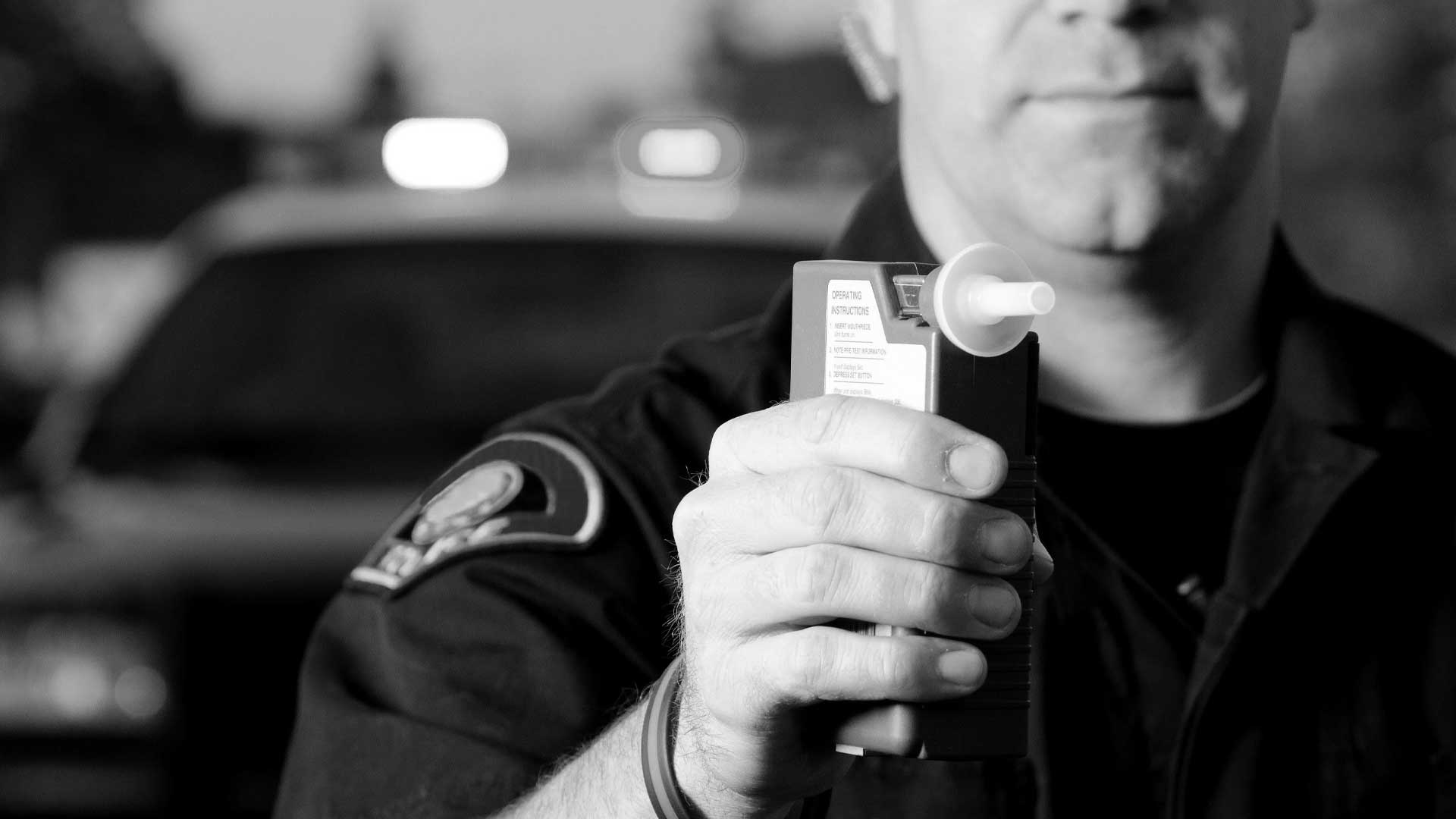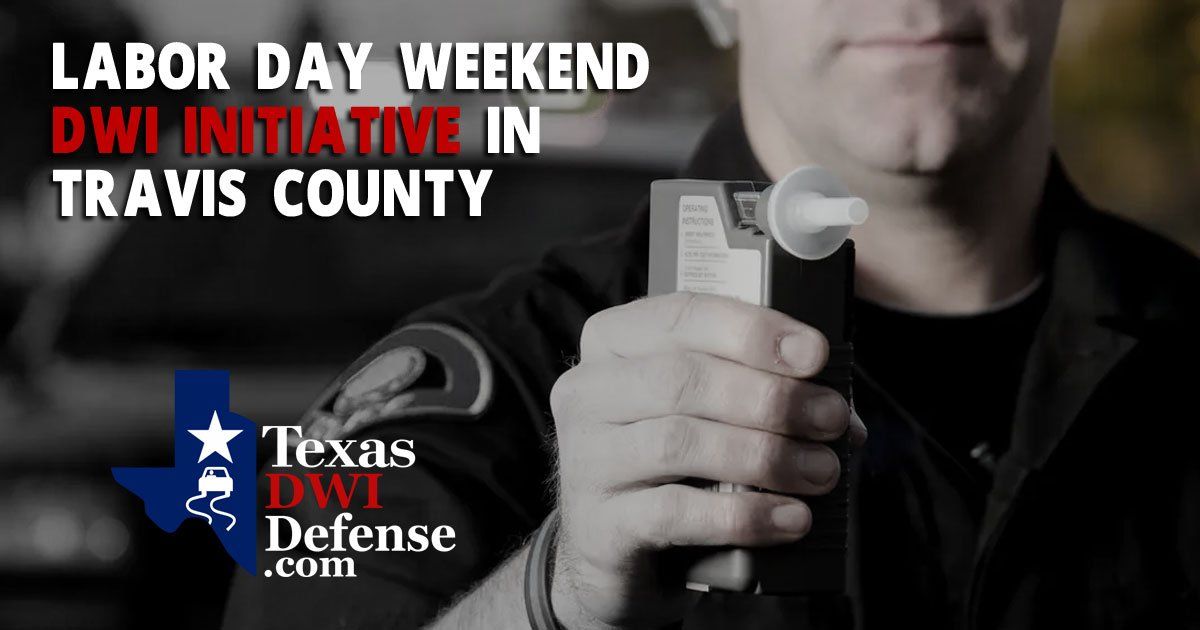-
Am I required to take Field Sobriety Tests?
No! The law does not require that you perform any type of test. You have the right to refuse Field Sobriety Tests. Interestingly enough, the officer is not required to tell you this. However, if you refuse to attempt these tests, the officer most likely is going to arrest you. Further, the National Highway Traffic Safety Administration has admitted not everyone can successfully perform these tests even when sober! The reality is that the officer most likely has already made up his mind to arrest you and the request for field sobriety tests is simply made to get additional evidence against you. Remember, regardless of how well you actually perform the field sobriety tests, it is the officers' opinion on how you performed them that will be held against you.
-
What should I do if asked to take Field Sobriety Tests?
If you know that you can pass these tests at the time you are asked to perform them, taking into account all the circumstances surrounding the request, I would suggest attempting them. If you pass them, the officer should let you go on your way. The difficult decision arises when you have never attempted any of these tests before. Are you nervous and scared about being stopped and asked to exit your car? How do you know if you can pass these tests, especially when the officer will not tell you what they are looking for? Further, the National Highway Traffic Safety Administration has admitted that not everyone can successfully perform these tests even when sober! If you are not sure what to do, respond by stating "Officer, I would like to contact a lawyer before deciding whether or not to take the tests." They most likely will not give you the opportunity, but at this point, you have not refused to perform them. There is a huge difference between refusing to attempt the tests, and asking to talk to a lawyer before deciding what to do. Prosecutors like to argue that the only reason you refused to do the tests is because you knew you could not perform them due to your intoxication level versus my argument that you made a logical decision by exercising your normal mental faculties in wanting legal advice. Which sounds better to you? Another approach to take would be as follows. "Officer, am I required to perform these field sobriety tests?" The honest answer is "No." Any other answer could leave a jury with the impression the officer is deceptive. You may then want to ask "Officer, are these tests 100% accurate?" The honest answer is "NO." The initial research conducted by the National Highway Traffic Safety Administration concluded that the Pen Test (Horizontal Gaze Nystagmus) is 77% accurate, the Walk & Turn is 68% accurate, and the One Leg Stand is 65% accurate, only when administered in the prescribed, standardized manner. Any deviation from the standardized manner will compromise the tests validity. Therefore, even with the most experienced officer and under ideal conditions, these tests will inaccurately label 23% - 35% of the people tested as intoxicated. And remember, these were the best DWI officers under strict surveillance, and that is the best they could do! At this point, ask "Officer, I would like to contact a lawyer before deciding whether to take the tests or not." He or she will not give you this opportunity, but you would be justified in politely informing the officer that you are not refusing to do these tests. Instead, you simply want the opportunity to speak with a lawyer before making such an important decision. You may also want to pose the question: "Officer, is there anything that can affect the tests other than alcohol?" Outside of just being uncoordinated, nervous or scared, you may fall into one of the recognized groups of people who cannot perform field sobriety tests even when sober. Additionally, I would suggest inquiring "Officer, are you going to videotape me when I perform the Field Sobriety Tests?" Your performance on tape will be evaluated by a group of your peers during a jury trial at a later time. Therefore, you may want to decline performing these tests if they are not going to be videotaped. Do you want to trust the officer's opinion as to how you performed or allow a jury to decide? Further, if the officer is not going to videotape you, you may want to elect not to perform the tests until you are being recorded because distractions such as police strobe lights, traffic, headlights, wind, dust, improper lighting, or improper police evaluation most likely will not be included in the police report. Without visual proof, do you think an officer would admit that he or she made a mistake? The reality is that the officer most likely has already made up his or her mind to arrest you, and the request for Field Sobriety Tests is simply made to get additional evidence against you. Remember, regardless of how well you actually perform the Field Sobriety Tests, it is the officer’s opinion on how you performed them that will be held against you.
-
What should I say if I am stopped by a police officer and asked if I have been drinking?
Be polite and courteous. Do not admit any type of guilt or apologize for anything. This is not the time to try and talk your way out of your situation. You will already be nervous enough and the chance of you saying something you do not mean will be greater. Also, if you do try and talk your way out of the stop, the officer will keep prompting you to further incriminate yourself, and you will most likely dig yourself into a deeper hole. Further, the officer most likely has already made up his or her mind to have you perform Field Sobriety Tests, so your answer may be irrelevant. If the tongue slips, telling the officer that you have had 1 or 2 drinks is not incriminating and may explain the odor of alcohol coming from inside the car. If you only had 2 drinks, I would tell the officer the time of your first drink, the time of your second drink, and where you were drinking. This confident, truthful answer would certainly let the officer know that you did not have enough alcohol to possibly be intoxicated. You need to understand that the number of drinks is not as important as the number of drinks within a certain amount of time. The State's experts testify (and officers have been trained) that the average male will absorb approximately 1 drink per hour and eliminate approximately 1 drink per hour. Therefore saying you had "6 drinks" sounds very incriminating compared to "I've had 6 drinks over the last 6 hours." Interestingly enough, far too many officers only ask how many drinks a person had – purposefully ignoring when the drinks were consumed, even though they know the time frame is more important than the number.
-
What signs do people exhibit while driving under the influence of alcohol?
The following signs listed below are indicators that a person might be driving while intoxicated. This list is based upon research conducted by the National Highway Traffic and Safety Administration:
- Turning with wide radius straddling center of lane marker
- "Appearing to be drunk"
- Eye fixation
- Tightly gripping the steering wheel
- Slouching in the seat
- Gesturing erratically or obscenely
- Face close to the windshield
- Drinking in the car
- Driver's head protruding from the car
- Almost striking object or vehicle
- Weaving
- Driving on other than designated roadway
- Swerving
- Speed slower than 10 M.P.H. below limit
- Stopping in lane for no apparent reason
- Following too closely
- Drifting
- Tires on center or lane marker
- Braking erratically
- Driving into opposing or crossing traffic
- Slow response to traffic signals
- Signaling inconsistent with driving actions
- Stopping inappropriately (other than in traffic lane)
- Turning abruptly or illegally
- Accelerating or decelerating rapidly
- Headlights off at night
Although the police believe speeding is a factor, speeding is not a recognized sign of intoxication. The faster you drive, the quicker your reactions must be. In my opinion, if you are speeding and driving normally, it is an indicator of sobriety (i.e. having the normal use of physical and mental faculties).
-
Does .08 apply to the time of the test or the time of driving?
It is only against the law to drive a car with an alcohol concentration of .08 or greater at the time of driving. If you were above a .08, waited until you were below a .08 and then drove, that does not violate the law. If you are driving below a .08, get stopped and then go above a .08, you did not violate the law. However, depending on when you were tested, the alcohol concentration may be relevant in determining what the actual alcohol concentration was in your body at the time of driving. The time of the test is a hotly contested issue. It is extremely rare to have a test that was conducted immediately after driving. It is common for a chemical test to be conducted 30, 60, or even 90 minutes after driving. Without knowing how many drinks were consumed, the period of time they were consumed, the type of drinks consumed, and if there was food in the stomach, it is scientifically impossible to determine if the person was over a .08, or more importantly, whether the person was under a .08 For example, I finish my fourth drink at 12:55 a.m. and leave my favorite hangout. The bar was dark and many people filled the room with cigarette smoke. I leave at 1:00 a.m. for my short drive home. As I am driving home, an officer notices that I have a broken taillight and pulls me over. During the conversation, he smells the odor of alcohol on my breath and subsequently arrests me. I am taken to jail and offered a breath test at 1:30 a.m. Do you think the test will show I am at or above a 0.08? It is equally possible that my breath test result would be as low as .05 or as high as .11 at the time of driving. This illustrates the need for you to find an experienced DWI lawyer.
-
What is .08 alcohol concentration?
"Alcohol concentration" is defined by statute as: a. the number of grams of alcohol per 100 milliliters of blood; b. the number of grams of alcohol per 210 liters of breath; or c. the number of grams of alcohol per 67 milliliters of urine. Unless you are an expert on the effects of alcohol, you will not be able to determine if you have an alcohol concentration of .08 or greater. One must also understand that the amount of alcohol in each of the above definitions is not equal. Therefore, you could have the normal use of your physical and mental faculties and one test would confirm your innocence (below 0.08) while another may unjustly insinuate your guilt (above 0.08). This fact alone points out the importance of hiring an experienced DWI lawyer who understands the differences in these tests.
-
By whose normal mental and physical faculties are we judged, and what is ‘normal’?
A person is charged with not having the normal use of his or her mental or physical faculties, NOT those of the Judge, the Prosecutor, or the Jurors. You must also realize that everyone has a "range" of what normal is. It is not one particular point on a scale, and what is normal varies day to day. Some days are better than others. For example, on a scale of 1 to 10, normal is not one particular number, rather it is better described as a range between 3 and 8 for the average person.
-
What is the legal definition of intoxication?
The legal definition of intoxication in Texas is:
- not having the normal use of mental faculties by reason of the introduction of alcohol, a controlled substance, a drug, a dangerous drug, a combination of two or more of those substances, or any other substances into the body; OR
- having an alcohol concentration of 0.08 or more.
One must understand that the Prosecutor only needs to prove one of the three ways in order to obtain a conviction. Therefore, if there is no Breath or Blood Test and the person has the normal use of their physical faculties, yet a jury believes that he or she lost the normal use of their mental faculties, they should find the person guilty. However, it has been our experience that people will lose both the normal use of their physical and mental faculties together. If the evidence shows they only lost one of them and not the other, there is a logical explanation for that, meaning, they are not intoxicated (Not Guilty). Even though most people talk about "drunk driving" (i.e. friends don't let friends drive drunk), a person does not necessarily have to be drunk to be intoxicated. Most people agree that people become intoxicated before they become drunk. Therefore, if you are drunk, you most certainly are intoxicated.
TESTIMONIALS
“I was in need of a dependable attorney to represent me on a crucial criminal case and was astonished at the effort and capabilities of Morales Law Office. I was always kept updated and they made me feel very comfortable and best of all they got my case dismissed!” J. Briones




